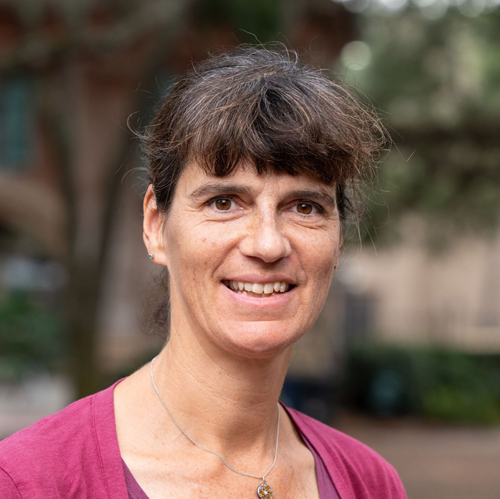
Elisabeth van Meer
Adjunct Professor
Elisabeth van Meer is an interdisciplinary historian who enjoys teaching special topics and survey courses in Modern European and World history. She received her PhD, in history of technology and science, from the University of Minnesota. Her research involves the international technological, cultural, economic, and political history of East Central Europe, particularly interwar Czechoslovakia. Her published work has examined the professional goals, national self-images, and international strategies of engineers, social scientists, and businesses before and after the fall of the Habsburg Empire and she is currently working on a book manuscript on Expertise, Internationalism, and the Construction of Czechoslovakia, 1900-1948.
Education
Ph.D. University of Minnesota
Graduate-student-at Large University of Chicago
M.A. University of Maastricht
Research Interests
Technology and Culture
East Central Europe
International History
Courses Taught
Modern history
Modern Europe, the Quest for the Arctic
Inventing Modern Europe
Visions of “America” in Europe: From Buffalo Bill to Bill Gates
Technology and Culture in the Modern World
Premodern history
Inventing “the West” (interdisciplinary honors)
A World of Inventions
Honors and Awards
Junior Scholar, Woodrow Wilson Center, East European Studies Program
University of Minnesota Dissertation Fellowship
Fulbright Fellow
Publications
In European History:
Together with Casper Andersen and Ludvig Goldschmidt Pedersen. “Science, Health, and American Money: Small State Strategies in Interwar Czechoslovakia and Denmark.” In The Politics of Smallness in Modern Europe, edited by Samuël Kruizinga, 97-114. London: Bloomsbury Publishing, 2022.
“Modernity on ‘Brabant’s Heath’: Building Batadorp in the Netherlands, 1932-1959.” In Company Towns of the Bat’a Concern: History – Cases – Architecture, edited by Ondřej Ševeček and Martin Jemelka, 165-178. Stuttgart: Franz Steiner Verlag, 2013.
“The Transatlantic Pursuit of a World Engineering Federation: For the Nation, the Profession, and International Peace, 1918-1948.” Technology and Culture 53, no. 1 (January, 2012): 120-145.
“’The Nation is Technological:’ Technical Expertise and National Competition in the Bohemian Lands, 1800-1914.” In Expert Cultures in Central Eastern Europe: The Internationalization of Knowledge and the Transformation of Nation States since World War I, edited by Martin Kohlraush, Stefan Wiederkehr, and Katrin Steffen, 85-104. Osnabrück: Fibre Verlag, 2010.
In Computer History:
“ELIZA,” “DENDRAL,” “Giant Brains,” “MOLGEN,” “MYCIN,” “PARRY,” “Symbol Manipulation,” “Symbolic Logic.” In Encyclopedia of Artificial Intelligence: The Past, Present, and Future of AI, edited by Philip L. Frana and Michael Klein, Santa Barbara: ABC-CLIO, 2021.
“PLATO: From Computer-Based Education to Corporate Responsibility.” Iterations: An Interdisciplinary Journal of Software History 2 (2003), www.cbi.umn.edu/iterations/tc.html.
Book Reviews:
Gaming the Iron Curtain: How Teenagers and Amateurs in Communist Czechoslovakia Claimed the Medium of Computer Games, by Jaroslav Švelch. Technology and Culture 61, no. 2 (April 2020): 702-704.
Writing the Rules for Europe: Experts, Cartels, and International Organizations, by Wolfram Kaiser and Johan Schot. Technology and Culture 57, no. 2 (April 2016): 483-485.
“Text, Image, Flusser.” Review of Vilém Flusser: An Introduction, by Anke Finger, Rainer Guldin, and Gustavo Bernardo; Into the Universe of Technical Images, by Vilém Flusser; and Does Writing Have a Future?, by Vilém Flusser. Technology and Culture 53, no. 4 (October 2012): 913-917.